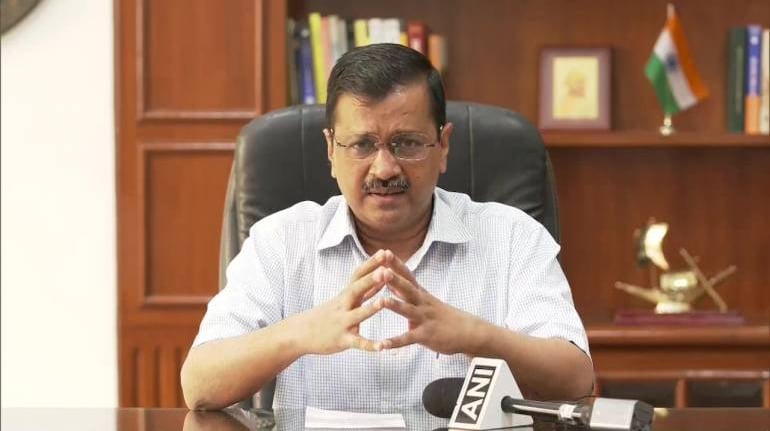



The Delhi government has announced imposition of a lockdown in the national capital amid second wave of COVID-19 cases in the country. The lockdown will extend from 10.00 pm on April 19 to 6.00 am on April 26, Chief Minister Arvind Kejriwal said in a televised address.
The chief minister said that the six-day lockdown period will be used to arrange oxygen, medicines and add more beds in Delhi. The announcement came shortly after Kejriwal's meeting with Lieutenant Governor Anil Baijal.
Kejriwal said that essential services and food and medical services will continue as normal.
"In the last 24 hours, around 23,500 new COVID-19 cases were reported. Positivity rate and infections have increased. If 25,000 patients come every day then system will crumble, there is a shortage of beds," Kejriwal said.
"Delhi’s health system has been stretched to its limit, is under stress. Harsh measures will have to be taken to prevent a collapse of the health system," Kejriwal added.
In an appeal to migrant labourers working in Delhi, Kejriwal said, “I request you with folded hands. It's a small lockdown, only for six days. Don't leave Delhi and go. I am very hopeful that we won't need to further extend the lockdown. The government will take care of you.”
During his short address, Kejriwal thanked the Centre for assisting his state government and requested citizens to follow the guidelines.
Weddings will be allowed, but the number of people attending them will be capped at 50. Separate passes will be issued for the same.
A day earlier, Delhi had recorded its highest spike of 25,462 new daily COVID-19 cases. The positivity rate shot up to 29.74 percent – meaning almost every third sample being tested in the city was turning out to be positive.
ALSO SEE: In Pics | Delhi lockdown: Hundreds rush to liquor shops to stock up booze
Kejriwal had also announced earlier that 1,400 to 2,000 beds will be readied for COVID-19 patients in the national capital in two days, as the city grappled with a shortage of oxygen and beds. on April 18, he visited the Yamuna Sports Complex and Commonwealth Games Village to inspect the progress being made in setting up COVID care centres there.
A curfew was imposed in Delhi over the weekend. Apart from those who had been exempted, a majority of Delhiites appeared to have stayed home. Only a few passengers were seen travelling on buses and metro trains in the national capital. Major markets, including Sadar Bazar, Chandni Chowk, Connaught Place, Khari Baoli and Karol Bagh, and industrial areas like Bawana, Narela and Okhla wore a deserted over the weekend.
Delhi was one of the largest hotspots in the country during the first wave of coronavirus infections in 2020.
Click here for Moneycontrol’s full coverage of the coronavirus pandemic
Discover the latest Business News, Sensex, and Nifty updates. Obtain Personal Finance insights, tax queries, and expert opinions on Moneycontrol or download the Moneycontrol App to stay updated!
Find the best of Al News in one place, specially curated for you every weekend.
Stay on top of the latest tech trends and biggest startup news.